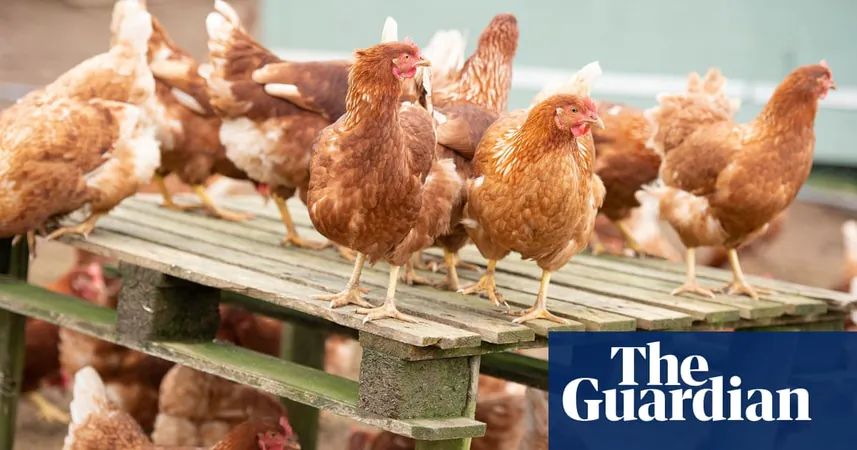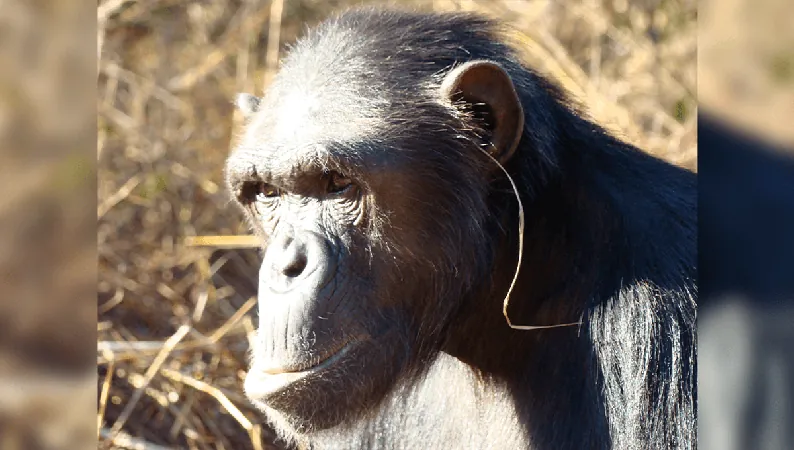
Alarming Mutations Found in First Severe Human Bird Flu Case in the US, Warns CDC!
2024-12-27
Author: Jia
Alarming Findings from the CDC
In a startling revelation, the Centers for Disease Control and Prevention (CDC) announced on Thursday that its investigations into the first severe human case of bird flu in the United States have uncovered concerning mutations within the virus. This case was reported last week involving a Louisiana resident over the age of 65, who has been battling a serious respiratory illness linked to the virus.
Details of the Virus Mutations
The analysis indicated that the patient's samples exhibited mutations in the hemagglutinin (HA) gene—crucial for the virus to latch onto host cells. These mutations were not present in samples taken from an infected backyard flock located on the individual's property, raising questions about the origins and potential evolution of the virus.
Public Health Risk Assessment
Despite these alarming findings, the CDC reassured the public that the overall risk remains low. They clarified that the patient was infected by the D1.1 genotype, which has been detected recently in wild birds and poultry across the United States. Interestingly, this strain differs from the B3.13 genotype, previously identified in some poultry, dairy cows, and even humans in various states.
Concerns Over Rare Mutations
What's especially notable is that the mutations found in this case are rare and have been reported in severe infections in other countries. One such mutation has previously been associated with another severe bird flu case in British Columbia, Canada, hinting at a potentially concerning trend.
Continued Vigilance Recommended
While the investigation continues, it is important to highlight that there have been no reports of the virus transmitting from this Louisiana patient to any other individuals. Health officials are urging everyone to remain vigilant, particularly those working with birds or poultry, and to adhere to safety protocols.
Call for Increased Research and Surveillance
As the situation develops, experts are calling for heightened surveillance and research to better understand these mutations and their implications for public health. The CDC emphasizes that while the virus can pose challenges, the risk to the general public still remains low. Stay tuned for further updates on this unfolding story!



 Brasil (PT)
Brasil (PT)
 Canada (EN)
Canada (EN)
 Chile (ES)
Chile (ES)
 Česko (CS)
Česko (CS)
 대한민국 (KO)
대한민국 (KO)
 España (ES)
España (ES)
 France (FR)
France (FR)
 Hong Kong (EN)
Hong Kong (EN)
 Italia (IT)
Italia (IT)
 日本 (JA)
日本 (JA)
 Magyarország (HU)
Magyarország (HU)
 Norge (NO)
Norge (NO)
 Polska (PL)
Polska (PL)
 Schweiz (DE)
Schweiz (DE)
 Singapore (EN)
Singapore (EN)
 Sverige (SV)
Sverige (SV)
 Suomi (FI)
Suomi (FI)
 Türkiye (TR)
Türkiye (TR)
 الإمارات العربية المتحدة (AR)
الإمارات العربية المتحدة (AR)